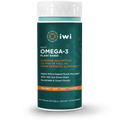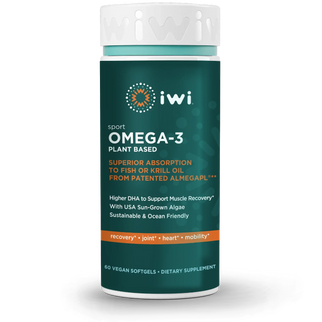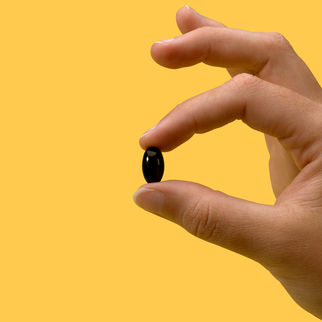Dedicated fitness enthusiasts and weekend warriors alike know that exercise is a transformative experience both physically and mentally. While many glorify the sweat-soaked t-shirts and that post-workout glow, they often fail to properly replenish their bodies.
The often-overlooked post-workout window is where the magic truly happens. It's not just about how far you can run, how heavy you can lift, or how deep you can stretch — it's about properly nurturing your body afterward.
In the world of holistic health, the road to recovery requires making the right decisions. Today, let’s look at the best post-workout drinks you can consume to help your muscles recover properly.
Why Is Post-Workout Recovery Important?
The post-workout phase is a critical period where the body undergoes healing, rebuilding muscles that are stronger and more resilient than before.
Here's the catch: this transformation doesn’t occur automatically. The body craves certain nutrients to fuel this recovery. Neglect this essential aspect, and you're looking at a path that could lead to prolonged fatigue, hindered performance, and susceptibility to injuries.
In essence, to truly cherish the fruits of your labor, post-workout recovery is non-negotiable.
What Role Do Nutrients Play in Muscle Recovery?
When it comes to nutrients, you can’t simply grab any snack or drink you want and expect the best results. Our bodies function like highly complex machines, and each nutrient that you ingest plays a unique and indispensable role in its repair and maintenance:
Protein
Often hailed as the cornerstone of recovery, proteins are the body's primary tool for muscle repair. When you exercise, muscle fibers experience wear and tear. Proteins, or more specifically amino acids, mend these fibers, making them stronger and more robust.
Carbohydrates
Think of carbs as the body’s energy currency. After a workout, our energy reserves are depleted. Consuming carbohydrates helps replenish glycogen stores in muscles, ensuring that you're primed and ready for your next session.
Fats
Healthy fats play a pivotal role in muscle recovery. They act as a slow-burning energy source, assist in hormone production, and facilitate the absorption of some vitamins.
Vitamins
Vitamins are always beneficial for the body, but they really step up in the recovery process. Vitamins C and E are antioxidants that help support the body during post-workout oxidative stress. Vitamin D, on the other hand, plays a role in bone health and muscle function.
Minerals
Magnesium, zinc, and calcium are minerals essential for muscle function and energy metabolism. They respectively aid in reducing muscle cramps and fatigue, and play a role in bone health.
Electrolytes
After a rigorous exercise session, we lose electrolytes through sweat. These charged particles maintain our body's fluid balance and muscle function. Sodium, potassium, and chloride are vital electrolytes that, when replenished, prevent dehydration and muscle cramps.
Which Drinks Are Best for Post-Workout Muscle Recovery?
The world of post-workout drinks — and post-workout nutrition in general — can be overwhelming. To simplify it for you, here’s a list of eight drinks that stand out:
1. Protein Shake
A staple in every fitness enthusiast's diet, the protein shake is commonly associated with muscle recovery. Not only do protein shakes provide a quick source of protein (hence the name), crucial for muscle repair, but they also serve as a blank canvas, giving you the option to switch up your routine and try new flavors.
Blend in fruits, veggies, or seeds to enhance the nutrient profile, customizing it to cater to your specific needs.
2. Tart Cherry Juice
This ruby-red elixir is more than just delicious — studies have consistently shown its efficacy in reducing muscle soreness.
What’s the secret to cherry juice’s success? A rich array of antioxidants and other compounds that help soothe tired muscles.
3. Chocolate Milk
Once reserved for childhood memories, chocolate milk has made a significant comeback in the world of fitness.
Its perfect ratio of carbohydrates to protein makes it ideal for glycogen replenishment and muscle repair, all while satisfying your sweet cravings.
4. Coconut Water
Often dubbed as "Mother Nature's sports drink," coconut water is filled with essential electrolytes like potassium and magnesium and offers impeccable hydration.
Its low-calorie profile, coupled with a refreshing taste, makes it a favorite among athletes and gym-goers alike.
5. Green Tea
While most associate green tea with relaxation and weight loss, its benefits in muscle recovery are gradually coming to the forefront.
The potent antioxidants, chiefly catechins, in green tea combat oxidative stress, promoting faster muscle recovery and reduced soreness.
6. Watermelon Juice
This refreshing juice is a hidden gem in the realm of muscle recovery. The amino acid L-citrulline, present in watermelon, has been linked to reduced muscle soreness and improved exercise performance — and let's not forget the hydration factor, ensuring muscles remain supple and well-nourished.
7. Sports Drinks
Sports drinks are meticulously formulated to focus on quick hydration, electrolyte balance, and often a surge of quick-digesting carbs to refuel exhausted muscles.
However, it's crucial to choose ones with minimal artificial additives and sugars.
8. Water
Simple, pure, and absolutely essential — the importance of plain water can never be overstated. It's involved in every cellular function, from nutrient transport to temperature regulation.
After a workout, water helps in rehydration, toxin elimination, and setting the stage for all other nutrients to work their magic.
Are There Any Drawbacks To Consider for Post-Workout Drinks?
Every coin has two sides. Similarly, while post-workout drinks offer many benefits, it's wise to be aware of certain potential pitfalls:
- Excess calories: While refueling is essential after a workout, one should be cautious not to consume more calories than burned. This can lead to unwanted weight gain.
- Protein overconsumption: While protein aids muscle recovery, there's a limit to how much our body can use. Consuming more than necessary might place undue stress on kidneys over time.
- Added sugars: Many commercial post-workout drinks can be laden with sugars. Excessive sugar intake can lead to energy crashes, weight gain, and even increase the risk of chronic diseases.
- Allergies or sensitivities: Ingredients in some drinks might not sit well with everyone. Always check for potential allergens, especially if you're prone to reactions.
What Else Can Help Your Muscles Recover After a Workout?
Beyond nutrition, there are also a handful of other steps you can take to support your muscles during the recovery phase.
Stretching
An often neglected aspect of fitness, stretching isn’t just about reaching your toes. It's a bridge between intense physical activity and rest, easing the body and mind into a state of recovery.
Regular stretching can enhance flexibility, improve blood circulation, and reduce the risk of injuries, ensuring that muscles rejuvenate efficiently.
Adequate Rest
It's a common misconception that muscles grow during workouts. In reality, workouts create microscopic tears in muscle fibers. The actual growth and repair happens during periods of rest, especially during deep sleep cycles.
Providing your body with consistent and quality rest ensures you wake up refreshed, with muscles that are stronger and more resilient.
Hot or Cold Therapy
Hot and cold sensations have been used for millennia to treat soreness and muscle pain.
A warm soak can dilate blood vessels, promoting increased blood flow and easing tense muscles. In contrast, a cold compress can numb pain, reduce inflammation, and constrict blood vessels, reducing swelling.
Foam Rolling
A modern marvel in the realm of self-care, foam rolling (or self-myofascial release) is like having a personal masseuse on standby.
By applying targeted pressure to muscle knots and tension points, foam rolling can alleviate stiffness, improve mobility, and expedite the muscle recovery process. It's an investment in your body that pays dividends in reduced soreness and enhanced performance.
Supplements
While whole foods are the cornerstone of nutrition, supplements serve as strategic reinforcements. They fill the gaps, ensuring that your body gets everything it needs, especially during the demanding post-workout phase.
At iwi life, we take pride in our algae-derived omega-3 supplements. Sourced sustainably and brimming with benefits, these supplements can offer a helping hand to your muscles.
The Takeaway
A perfect workout is incomplete without the perfect recovery routine. Compromise on recovery, and you’re compromising on results. The act of exercising breaks down your muscles, and it's the recovery that builds them back up, stronger and more resilient.
The post-workout phase isn’t just about refueling, but rejuvenating. Picking the right drinks, being aware of potential drawbacks, and complementing with recovery practices can set you on a path to optimal muscle health.
While you’re considering your next post-workout beverage, don't forget the potent plant power that iwi life brings to the table. With our sustainable, algae-derived omega-3 Sport supplement, you're not just aiding your muscles but also taking a step towards a healthier planet.
Dive deep into wellness, embrace recovery, and thrive with iwi life.
Sources:
Nutrient Timing Revisited: Is There a Post-Exercise Anabolic Window? | PMC
Fundamentals of Glycogen Metabolism for Coaches and Athletes | PMC
The Importance of Fatty Acids as Nutrients during Post-Exercise Recovery | PMC
Vitamin D and Bone Health; Potential Mechanisms | PMC
What Are the Benefits of Calcium-Magnesium-Zinc Supplements? | Medical News Today
Electrolytes: Types, Purpose & Normal Levels | Cleveland Clinic
The Importance of Stretching | Harvard Health
Should You Try Foam Rolling? | Cleveland Clinic
Effects of a Tart Cherry Supplement on Recovery from Exhaustive Exercise | MDPI
Chocolate Milk: a Post-Exercise Recovery Beverage for Endurance Sports | NCBI Bookshelf
Is Coconut Water Good After a Workout? Nutrition Experts Weigh In | Newsweek
Watermelon Juice: Potential Functional Drink for Sore Muscle Relief in Athletes | NCBI Bookshelf
Sports Drinks | The Nutrition Source | Harvard T.H. Chan School of Public Health


















